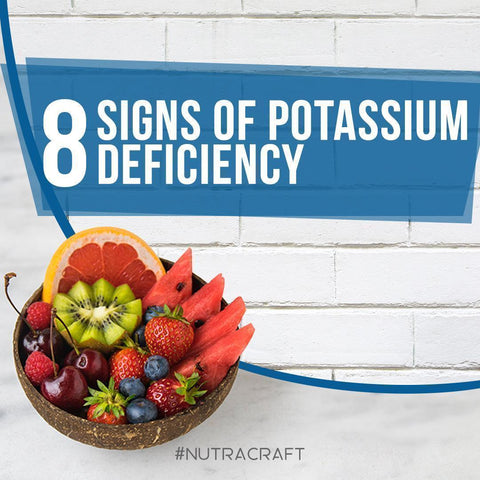
Alzheimer’s is thought to be related to two types of structural changes in the brain: the development of “lesions” of amyloid beta and neurofibrillary tangles. These lesions are made up of fragments of protein that conglomerate where they are not supposed to be.
These harmful structures in the brain have toxic effects on neurons, cause inflammation, can impede the delivery of essential materials like nutrients, and lead to the death of your brain’s signalling cells - neurons.
Using Ultrasound to Reverse Alzheimer’s
Researchers have been scrambling to find ways to prevent or reverse the formation of lesions in brain tissue. And researchers in Australia have done something amazing to the brains of mice.
By sending sound waves into the brains of mice, researchers sought to erase the lesions made by amyloid beta and neurofibrillary tangles that precede Alzheimer’s. These sound waves, sent using a special type of ultrasound called focused therapeutic ultrasound, were sent non-invasively into mouse brain tissue from outside their skulls.
Amazingly, 75% of the treated mice had plaques of amyloid beta removed from their brains, just by ultrasound! Researchers could see this result by using cellular imaging techniques, and it was also noted that the ultrasound caused no unhealthy changes to normal brain tissue. The mice who had the plaques removed performed much better on memory tests as well.
These maintenance cells, called microglia, are in our nervous systems to degrade dangerous plaques and damaged neurons, and kill pathogens like bacteria and viruses.
The reason why the ultrasound erased the plaques may be very simple. Via imaging, researchers could see that the maintenance cells of the brain had been activated by the sound waves and could actually be seen eating the dangerous plaques.
It seems so simple. If we can stimulate these seemingly miraculous microglia to do what they were meant to do and behave normally, then they could relieve our brains of the worst threats to our health.
Needless to say, the researchers who conducted this study were pleased with the results and want to test this ultrasound on more complex animals, all the way up to and on humans.
So it is possible that this type of safe, non-invasive procedure may show effectiveness in other animals at healing the brain and reversing dementia. Until the studies happen, we won’t know for sure.
The abstract of the ultrasound study can be read here.
Exclusive Bonus! Download the FREE report ‘5 Top Supplement for Optimum Health’ by clicking here.
Nutrition and Alzheimer’s
Researchers believe that the reasons why Alzheimer’s develops are similar to those of other degenerative diseases – excessive inflammation, heavy metal toxicity, oxidative stress, mitochondrial malfunction.1
The good news is that nutrition, including food and supplements, can substantially reduce these risk factors.
Take one medicinal spice for example – turmeric.
Curcumin, an active component in the spice turmeric, has shown near miraculous effects against the development of Alzheimer’s. In animal studies, curcumin reduces the formation of plaques of amyloid beta and has even been shown to degrade existing plaques, meaning that it may even reverse the physical signs of Alzheimer’s in the brain2, 3.
Curcumin is known to cross the blood-brain barrier, meaning that it gets absorbed into your brain, where it can exert its benefits1. And in a clinical trial in humans with Alzheimer’s, researchers believe they may have found signs of increased degradation of amyloid beta3. This is great news, although pessimists warn that Alzheimer’s may be more complex than just this one risk factor.
Many other nutritional medicines have been shown to diminish the risk factors or possible causes of Alzheimer’s. Nutracraft’s LiverLift liver cleanse supplement, for instance, contains several of these ingredients like N-acetyl-l-cysteine, alpha lipoic acid, and turmeric.
1. Shrikant Mishra, Kalpana Palanivelu, The effect of curcumin (turmeric) on Alzheimer's disease: An overview, Ann Indian Acad Neurol. 2008 Jan-Mar; 11(1): 13–19. doi: 10.4103/0972-2327.40220
2. Yang F, Lim GP, Begum AN, Ubeda OJ, Simmons MR, Ambegaokar SS, Chen PP, Kayed R, Glabe CG, Frautschy SA, Cole GM., Curcumin inhibits formation of amyloid beta oligomers and fibrils, binds plaques, and reduces amyloid in vivo., J Biol Chem. 2005 Feb 18;280(7):5892-901. Epub 2004 Dec 7.
3. Baum L, Lam CW, Cheung SK, et al. Six-Month Randomized, Placebo-Controlled, Double-Blind, Pilot Clinical Trial of Curcumin in Patients with Alzheimer Disease. [In eng] J Clin Psychopharmacol. 2008 Feb; 28(1): 110-3.










